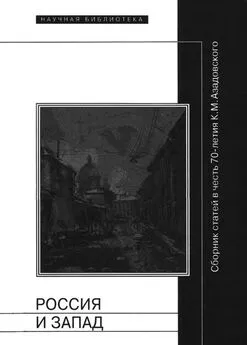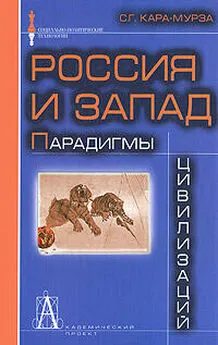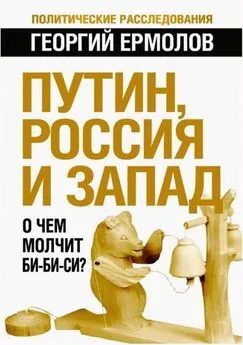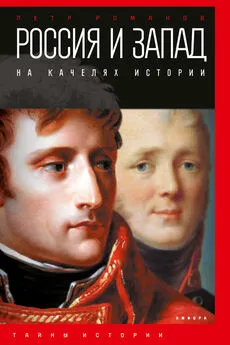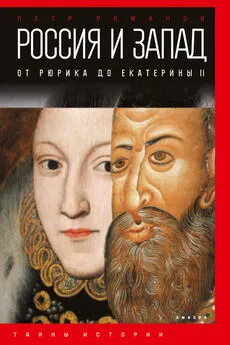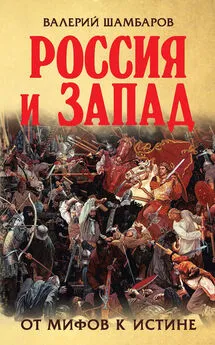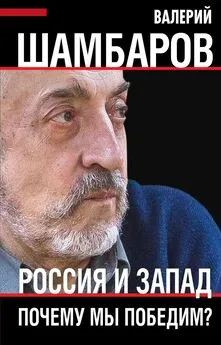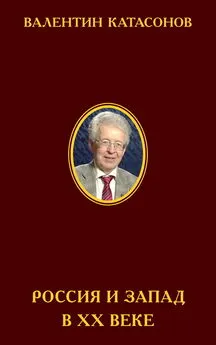Михаил Безродный - Россия и Запад
- Название:Россия и Запад
- Автор:
- Жанр:
- Издательство:Новое литературное обозрение
- Год:2011
- Город:Москва
- ISBN:978-5-86793-917-5
- Рейтинг:
- Избранное:Добавить в избранное
-
Отзывы:
-
Ваша оценка:
Михаил Безродный - Россия и Запад краткое содержание
Сборник, посвященный 70-летию одного из виднейших отечественных литературоведов Константина Марковича Азадовского, включает работы сорока авторов из разных стран. Исследователь известен прежде всего трудами о взаимоотношениях русской культуры с другими культурами (в первую очередь германской), и многие статьи в этом сборнике также посвящены сходной проблематике. Вместе с тем сюда вошли и архивные публикации, и теоретические работы, и статьи об общественной деятельности ученого. Завершается книга библиографией трудов К. М. Азадовского.
Россия и Запад - читать онлайн бесплатно полную версию (весь текст целиком)
Интервал:
Закладка:
Much more powerful than the mother figure is the Magdalene theme of the lover and fallen woman, surrounding Lara’s adolescent years and reflected in discourses about Magdalene and in the two Zhivago poems devoted to Magdalene. Indeed, Lara, who is described as an intercessor, or «zastupnitsa», in the Yuriatin part of the novel combines both Magdalene and Mary Theotokos in her capacious life experience and generous character [377].
Despite an implicit resistance to the images that form Akhmatova’s fundamental poetic identity, Pasternak shows that Akhmatova was very much on his mind in the final poem of «Doctor Zhivago», «Гефсиманский сад». Attached to a handwritten copy of the final poem, written in 1950, in which the poet announces himself as the judge of his age, was a dedication to none other than «Анне Андреевне [Ахматовой] [sic]» [378]. Not only does this dedication show that Akhmatova was on Pasternak’s mind, but when we examine the text of this final poem of «Doctor Zhivago», we also confirm that it responds specifically though obliquely to the final monument poem of «Requiem», in which Akhmatova creates a monument to herself and all the mothers who bore witness to the horrors of the Stalinist tyranny. Pasternak is competing precisely with Akhmatova, even as he is leaving his own mark as the witness and judge of his age.
The proof can be found in the parallel ship and river images at the end of each poem. Akhmatova’s epilogue ends with: «And may the melting snow stream like tears / From my motionless lids of bronze, // And a prison dove coos in the distance, / And the ships of the Neva sail calmly on». In the final lines of «Garden of Gethsemane» Pasternak raises the stakes, answering Akhmatova’s Mary by speaking as the Orthodox Christ Pantocrator.
Я в гроб сойду и в третий день восстану,
И, как сплавляют по реке плоты,
Ко мне на суд, как баржи каравана,
Столетья поплывут из темноты [379].
The ships on the river that form an ironically peaceful background to Akhmatova’s memorial to maternal suffering, now become a crucial image of human history, filled with evil deeds, part of the drama of final judgment. Pasternak has erected his Christ Pantocrator, the Ruler and Judge of All, in clear juxtaposition to Akhmatova’s Mother of God and the bronze memorial, who stand resolutely by the site of death (whether the biblical Crucifixion or at Stalin’s «Crosses» Prison) and never allows us to forget. One rather grandiosely claims authority as the divine Orthodox judge, while the other is merely human and the intercessor and protector of people, who judges effectively by always keeping alive the memory of injustice, so that people should never have to suffer that murderous fate again.
The final act of the Akhmatova-Pasternak drama played out in the 1950s, when Pasternak had finished his novel, and Akhmatova criticized it for what she saw as an inappropriately self-absorbed image of the public poet. Akhmatova found Pasternak the man, as well as his image of Christ in «Doctor Zhivago» overly self-centered. She corrected him both in person and through her poetry, in a poem from 1959, entitled «The Reader». Nonetheless, she would find authentic spirituality in other, much more private Pasternak poetry.
After World War II Akhmatova was endlessly annoyed by Pasternak’s ignoring her poetry and had gradually become a stem critic of her erstwhile ally. Although by 1956 there was «no continued friendship» between the two monumental poets, Akhmatova and Pasternak had always trusted each other with their poetry [380]. Pasternak read the beginning of «Doctor Zhivago» to Akhmatova in 1947. By late 1957, when it was completely finished, Akhmatova had read «Doctor Zhivago» to the end. Irritated by the novel, according to Chukovskaya, she found «completely unprofessional pages», which she sarcastically attributed to Pasternak’s late-life lover, Olga Ivinskaya She reportedly was tempted to «grab a pencil and cross out page after page» [381]. Ignoring the novel’s religious-philosophical discourse, she claimed somewhat disingenuously, in my view, that the best passages «in this novel are landscapes… I responsibly affirm, there is nothing like them in Russian literature. Not in Turgenev, not in Tolstoi, nowhere. They are ingenious» [382].
Indeed, Pasternak’s ubiquitous references to the Gospel in «Doctor Zhivago» and his poetic identification with the Christ figure in the Doctor Zhivago poetry appear to have been a major source of irritation to Akhmatova A 1947 poem, «То B. Pasternak», written just as Pasternak was starting to share pieces of the novel, she renewed the biblical theme informing their rivalry, relating Moscow at this time after the renewed post-war attacks on literature in 1946, to Gethsemane and the moments before the Crucifixion. Akhmatova talks about the world falling deaf and quiet, following the treachery and anticipating impending death:
Так вот она, последняя! И ярость
Стихает. Все равно что мир оглох.
Могучая евангельская старость
И тот горчайший гефсиманский вздох [383].
This poem raises the theme of Gethsemane that would be central to the first of the Zhivago poems and one of Pasternak’s signature poems, «Hamlet», written in 1949.
Toward the end of the 1950s Akhmatova wrote a poetic response to «Hamlet», titled «The Reader» [ «Chitatel’», 1959]. Increasingly, she felt that as one of the leading poets of Russia, Pasternak was too focused on himself. In April 1959 she commented to Chukovskaia that «[Pasternak] is a wonderful person and a divine poet. But the same thing that happened to Gogol, Tolstoy, and Dostoevsky happened to him: toward the end of his life he put himself above art» [384]. At an infamous dinner in Peredelkino August 21, 1959, the last time the two poets met, Pasternak refused to sit next to Akhmatova and made fun of her when she recited her new poems [385]. Akhmatova, in turn, struck back by declaiming «The Reader». «Hamlet» conveys the poet as actor playing Christ in the Garden of Gethsemane, in a way that also links the Christ story to Shakespeare’s «Hamlet» (which Pasternak had been translating):
На меня наставлен сумрак ночи
Тысячью биноклей на оси.
Если только можно, Авва Отче,
Чашу эту мимо пронеси [386].
In her poem, Akhmatova depicts Pasternak as a self-centered poet who is decidedly not a Christ figure [387].
He должен быть очень несчастным
И, главное, скрытным. О нет! —
Чтобы быть современнику ясным,
Весь настежь распахнут поэт.
И рампа торчит под ногами,
Все мертвенно, пусто, светло,
Лайм-лайта холодное пламя
Его заклеймило чело.
А каждый читатель как тайна,
Как в землю закопанный клад,
Пусть самый последний, случайный,
Всю жизнь промолчавший подряд [388].
Here Akhmatova reproaches Pasternak’s foregrounding of himself in his poem, «Hamlet», rather than the reader and the subject matter. For her, writing poetry is much less a performance on the part of the poet than it is a gesture of reaching out for contact with another person. It is, indeed, a form of dialogue.
Despite the tense and bitter final meeting Akhmatova was quick to remember another poem, in which, in her view, Pasternak was both at his height as a poet and achieved authentic treatment of the divine. She found in «In the Hospital» («V bol’nitse», 1957), a truly inward, genuine I-Thou conversation with God in the moments before the poet’s death. The poem ends with this prayer:
«О господи, как совершенны
Дела твои, — думал больной, —
Постели, и люди, и стены,
Ночь смерти и город ночной.
Я принял снотворного дозу
И плачу, платок теребя.
О боже, волнения слезы
Мешают мне видеть тебя.
Мне сладко при свете неярком,
Чуть падающем на кровать.
Себя и свой жребий подарком
Бесценным твоим сознавать.
Кончаясь в больничной постели,
Я чувствую рук твоих жар.
Ты держишь меня, как изделье,
И прячешь, как перстень, в футляр» [389].
This poem is suffused with a vivifying sense of gratitude. Interestingly, when Pasternak, the poet who wanted to believe so strongly in resurrection, thought that he was on his death bed in 1957, the themes of resurrection and new life that suffuse «Doctor Zhivago» are no longer part of the discourse. Rather he is glad of his life, fearful of death, and yet able to feel at peace at the end of his life.
In conclusion, what was the miracle in the rubble of the Russian revolution that Akhmatova and Pasternak helped to create? And was it despite or because of their biblically based poetic quarrel? To start with, in the very way that they used language and composed their art they brought dead objets, images, and stories back to life — in short, they made miracles. «Pasternak, like Akhmatova», as Chukovskaia put it somewhat crudely, «makes miracles out of garbage» [390]. And Akhmatova’s and Pasternak’s art helped to assure the survival of the rich religious and philosophical renaissance of an earlier age, which accorded each person both personal voice and moral choice. Through their courage and perhaps even because of their rivalry and their sometime subtle and sometimes completely unsubtle criticisms of each other’s biblical interventions, both poets kept alive the Orthodox tradition and the Bible as «the notebook of humanity». And that is indeed a miracle.
Леонид Семенов — корреспондент Андрея Белого
«Мои слова памяти будут о стихотворце, мятежнике, работнике, страннике, священнике и мученике Леониде Семенове-Тянь-Шанском», — в этой фразе З. Н. Гиппиус из ее очерка «Поэма жизни (Рассказ о правде)» (1930) [391]обозначены основные жизненные вехи одного из «младосимволистов», сверстника Александра Блока и Андрея Белого, избравшего, однако, иную — не собственно творческую, а (используя символистскую терминологию, в данном случае вполне уместную) «жизнетворческую» стезю. Обретенный Семеновым в 1907 году путь «жизнетворчества» предполагал не только отказ от литературных форм самовыражения, но и полное изменение образа существования:
Читать дальшеИнтервал:
Закладка:
